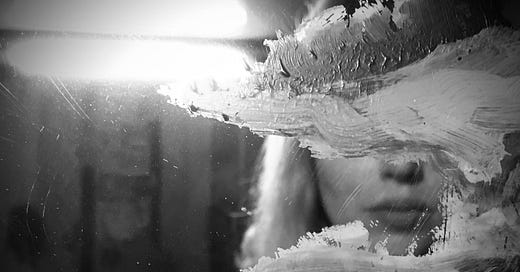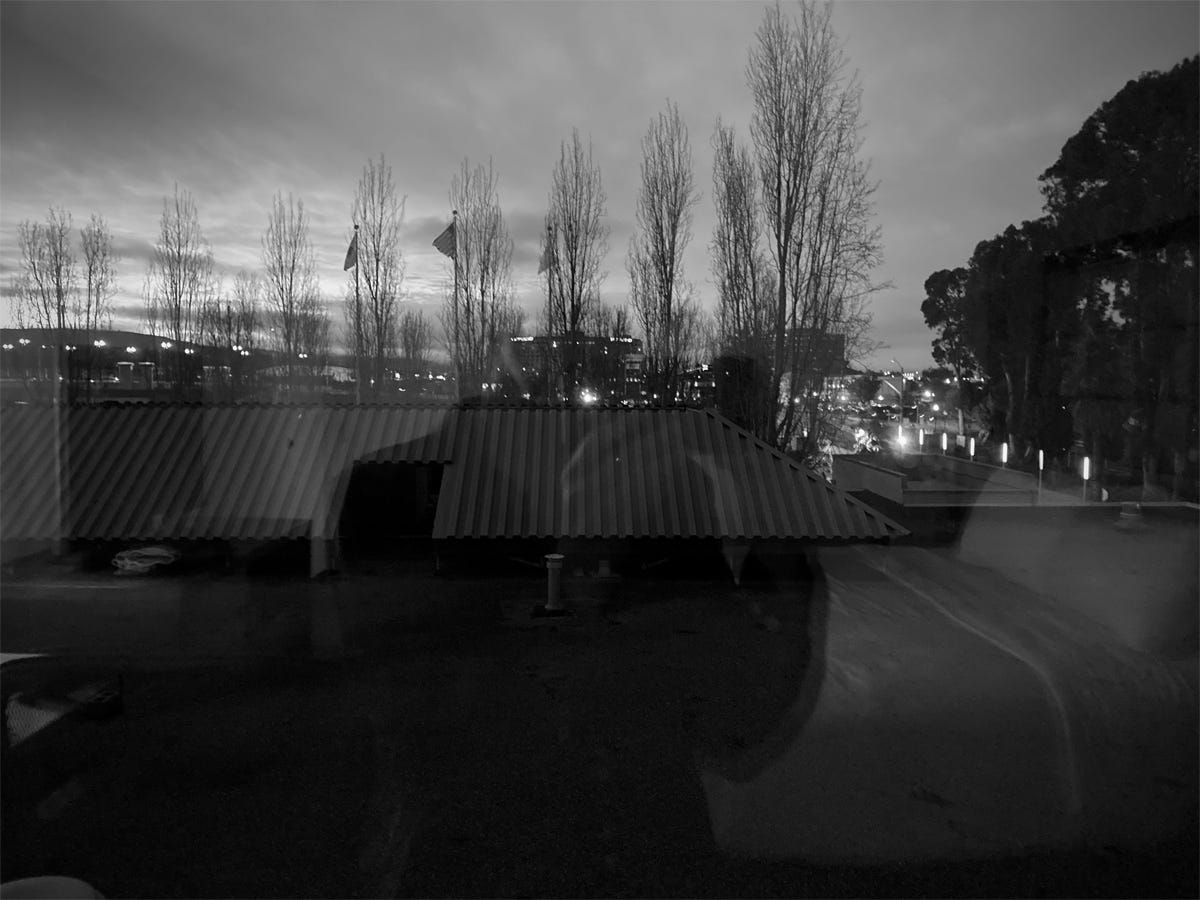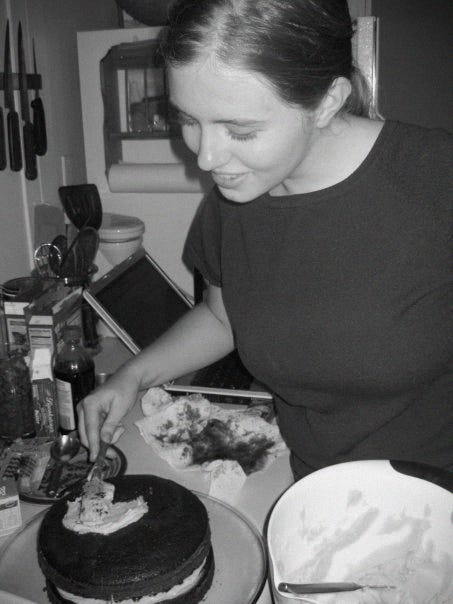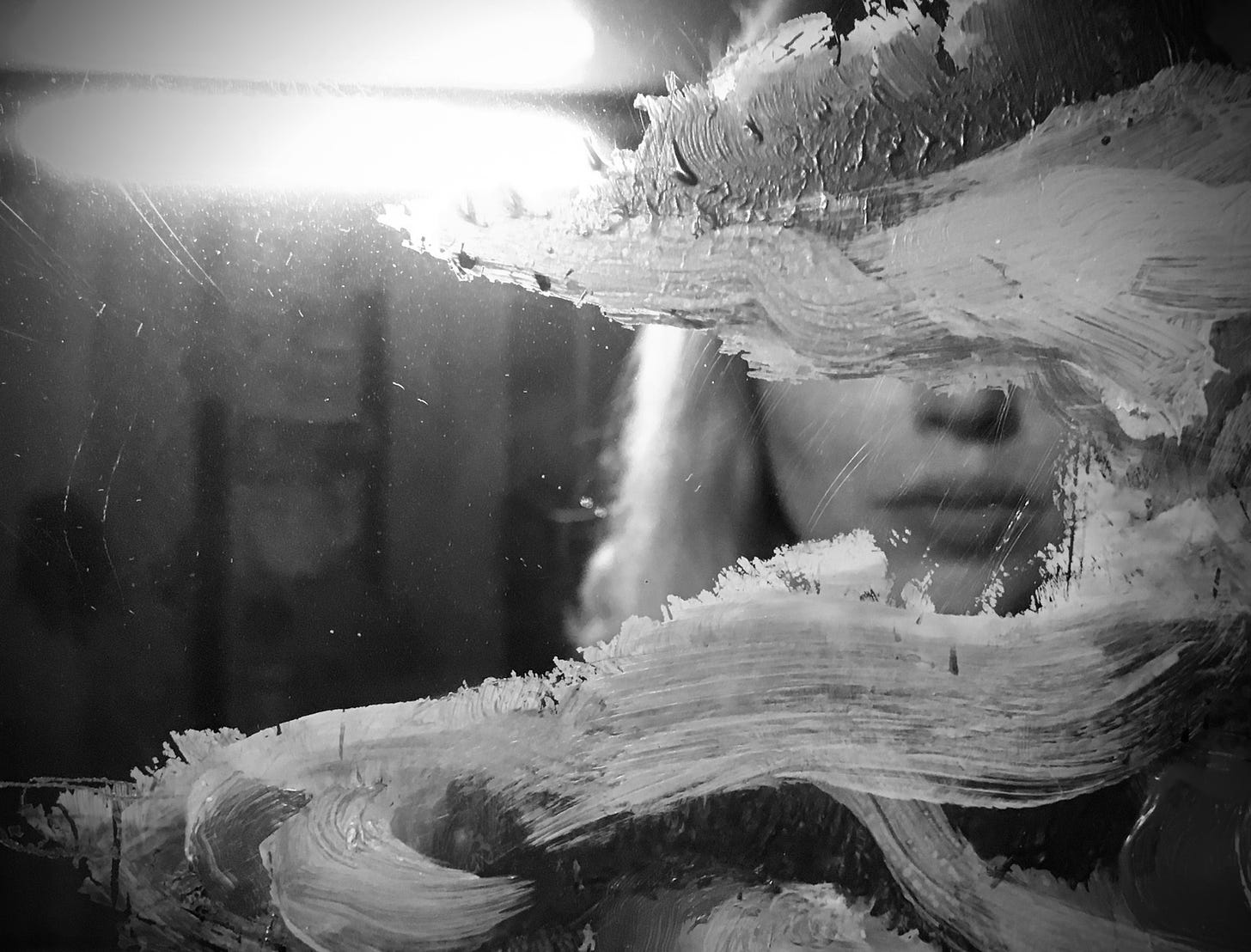When I Disappeared
I had been captivated for months by the stories of people who just walked away from their lives. Then I became one of them.
I’m still having trouble saying my name. Tonya *hesitation* Morton. Is that right? I have to ask myself each time. Yes, that’s right. Hesitation Morton. My new and very old name.
For a while I kept forgetting and saying the other one. The married name. A surname is a hard habit to kick, it turns out. Your mouth gets used to saying one thing. And, after all, that was the only name I had for a decade, until one morning this past April when it wasn’t anymore. Or was it earlier? It feels like it was earlier.
Maybe I lost that name months earlier, but somehow it was still attached to me, like a Halloween tail on a safety pin, until April, when a judge declared that it was gone.
A name used to feel like such a permanent thing. I thought I’d be wearing my old name forever, but it rubbed off as easily as a temporary tattoo. Gone in a moment, when the Judge signed the decree. I wasn’t even there when it happened. My pandemic-era divorce took place over Zoom. I watched via webcam while all my signatures and signoffs of the past decade became limited editions.
I’ve practiced writing the new one in notebooks, like a sixth grader. I’ve repeated it to myself under my breath. Morton Morton Morton. But lately, when someone asks me who I am, I’ve had to say, “It depends,” more often than anything else. Not for kicks—though I do get a kick out of that sort of rhetorical turnaround. The name has depended, from place to place, hour to hour. For a couple weeks, the Tonya of my driver’s license had a different name than the Tonya of my bank account. The Tonya of my health insurance only changed last week. Does it really matter what name I say? It matters a little. If nothing else, people think it’s peculiar when you don’t know what to call yourself.
A year ago I was one person. Now I am officially someone else. In the months between… to be honest, it often felt as if I were nobody at all.
In the before time—before last December—I was the publisher of a different online publication. I wrote essays, handled the website, the contributors, the emails, etc. It had been my ex-husband’s publication before I arrived, and it’s his again now. You won’t find much of me on that website these days. But I was there—first listed as “co-” publisher, then finally as sole publisher—over the course of a decade. A little more than a decade. It was all of my adult life, until December.
The final piece I wrote for that website was an essay called “How to Disappear.” A self-explanatory title. It was published in the Fall of 2021. I had been captivated for months by the thought of people who just walked away from their lives and were never seen again. I spent weeks reading stories of inexplicable disappearances.
“He just stepped out for a pack of cigarettes…” the essay began. It would be easy to say I knew I was headed for the door. The truth is, I didn’t know.
I had to rewrite the piece before I published it. The first draft was so wistful. I sounded like I wanted to disappear from my own life. And I did want to, but I wasn’t ready to admit that yet—not publicly, not even silently to myself. So I wrote it again.
I kept a few of the offending lines. “Some of us watched the freight trains pass by as children.” That line remained intact. “They carried the feeling of a dream.” The whole time I was writing the piece, I was transfixed by the sight of trains, of buses and trucks, planes flying overhead. Every means of conveyance. Anything to take a person from here to somewhere else.
“I want to drive,” I would think, standing at the kitchen sink. “I just want to drive away from here.”
In Japan, they have companies known as Night Movers. They help people to evaporate from their own lives. I read stories of the Jouhatsu, the evaporated, while I researched that essay. Men like Sugimoto (not his real name). “I got fed up with human relationships,” Sugimoto said to a BBC reporter. “I took a small suitcase and disappeared.” The Night Movers took him away one night and they swept his tracks behind him.
I didn’t have any Night Movers when I left my life. I didn’t have any plans at all. Events forced my hand and I left in a hurry. But when my whole world broke apart, I found that I had angels. My friends across the street took me in. They helped me pack my bag. They drove me to the airport hotel, where I waited overnight for a morning flight. Without my angels, I don’t know how I could have done it.
In that hotel in Wichita—it was the evening of December 20th—I took off my wedding ring. If I were writing a screenplay of my disappearance, that would be a moment I’d highlight. Act One, Final Scene. The Main Character takes off her wedding band. Does she look at it? No. She puts it away. She zips it into a compartment inside her toiletry bag.
As I closed the bag, I looked in the mirror over the sink. How did I feel now? Lighter. I’ll admit to feeling lighter. I felt like two people, split. The woman in the mirror was already gone from Kansas. She was somewhere out ahead. She looked certain, and I trusted her confidence. The other woman—the one in the room—was shaking so hard, unpacking her things for the night, that she knocked her toothbrush onto the floor.
I sat on the floor with the toothbrush for a long time.
The next day, through two flights and a layover to California, my left thumb returned to my ring finger. It slid against the skin—that naked half inch where the finger met my palm. “I’m getting divorced,” I told the airport shuttle driver, when he asked me whether I was looking forward to seeing my family for Christmas. “I’m getting divorced,” I told the girl next to me on the flight. I held up my empty hand when I said it, like, isn’t this just the strangest thing? It felt strange. The words sounded insane coming out of my mouth. I just kept repeating them. I felt like a caricature, or like some character I’d seen in a movie once, though I couldn’t say what movie. I was crying at the gate in the Denver airport; when I wasn’t crying, I was laughing at myself for the messy scene I was making. It was all so unlike me. I didn’t take off my dark sunglasses until I reached the safety of my mother’s car in Oakland.
I realized that all the stories of the evaporated were told by the people they had left behind. Distraught families and confused lovers. Private Detectives on the trail. No story I’d read had described what it was like to disappear.
I can tell you what it’s like. It’s frightening. You’re rushing out into a future that doesn’t exist yet. Now I know why people hire the Night Movers. I could have used somebody with a checklist to tell me what was coming next. I was entirely unprepared for the blows of that first week.
First went my old job as Publisher. I read the email that was sent out to the subscribers announcing my departure. I read the posts about it online. In wild moments, I thought about writing a long response of my own and sharing it publicly. But the wild moments always passed. The people who know me, know me. I repeated that to myself like a mantra. I stayed away from my inboxes. I silenced my phone. Then I realized that, in the flight from my old world, I had forgotten to pack any scissors. I went to Rite Aid to buy another pair.
“I’m sorry,” the woman at Chase Bank repeated over the phone. She was saying this for the third time, after I had interrupted again and asked her to, please, just explain why my credit card was declined. “I’m so sorry.” She sounded genuinely sorry. She understood that I had bought a sandwich with that card just a couple days earlier. She had heard me repeat my name. “I can’t tell you anything about that account,” she said. “You aren’t on that account. You were before. But, as of today, you aren’t.” She spoke slowly. “So I can’t talk to you about anything now. Do you understand?” After a long silence, I said, “Yes, I understand.”
“I’m so sorry,” she said again.
Sometimes, when things are too much, my mind just flits away from them. At that particular moment, I started thinking about trees. The way that so many of the trees stay green in California all through the winter. It’s a little thing but, honestly, the trees help. Your own world may be crashing down around you, but the big world is still somehow thriving. I let the woman at Chase Bank hang up on me. Then I just stood there in the Rite Aid parking lot, looking up into the branches of a big green overhanging tree. I didn’t know where to go.
The local bank clerk sounded genuinely sorry too. “I’m sorry,” he told me. “It isn’t that you have a bad credit history.” He looked uncomfortable as he handed my rejection across the desk. “It’s just that you have very little credit history.” I protested. I had been using a credit card for years! I pulled out the useless card to show him. He nodded sadly. “But you were never the primary name on the account, were you?” I sat back in my plastic seat. I had no answer for that. “I’m so sorry,” he repeated. He explained my options and I tried to pay attention. I signed a few sheets of paper to solve my immediate problems.
The Assistant Manager stopped me as my mom and I reached the door of the bank. “I want you to know,” she said, “it’s going to get better.” She had been the one who recorded all my information when I came in. Long sleek black ponytail. Great lipstick. I had dropped my passport twice when I tried to hand it to her. Picking up my passport, I’d dropped my purse. But she was patient. She filled out the information she needed while I gathered myself. (Thank God, I thought, I had remembered to grab my passport on my way out the door in Kansas.) “I was divorced last year,” she said to me as we stood at the door. She shook her head at the memory. “It’s so awful right now. I know. But it gets better.” She was carrying a large black binder and she hugged it against her blazer.
“Everyone has been so kind.” I said this in a whisper, like maybe she was in on the secret too. Had she experienced the same thing? I was clinging to every little moment of kindness. There were so many—my angels in Kansas, the comfort of my family, and every hotel clerk and waitress I had met in the past few days. Each voice I heard was warm. Each face I met was understanding. Now, this woman in the bank had gone out of her way. Had the world always been full of kind people and I just hadn’t noticed? “I didn’t know it would be like this,” I said.
She nodded. “You learn a lot of things.”
There was so much I didn’t know before December. I had always understood arrival as a physical thing. I had experienced the lull of transit when I was between one place and another. But I didn’t know identity worked the same way. I didn’t expect all the confusion and tripping over myself. That I would wake up each morning at my mother’s house like a disoriented train passenger, with the sensation that I had slept through the past 12 stops.
I had been under the impression that time moved like liquid, flowing in one direction continuously. When you put your finger in a stream of water, it flows around the obstruction, but it’s the same fluid and it’s still moving.
Time isn’t like liquid. I get that now. Time can flow in two directions at the same time. It can pause and dam up for years, without anyone noticing. It can be broken, like wood, and splinter where it breaks.
When I first met my ex-husband, I was twenty-one years old. When I left, I was 33. But I didn’t feel 33. I wavered with all the insecurity of having just finished college. That same pointless English degree in hand. Had it ever helped me? I felt nervous and very young in a big, disinterested world. I thought about applying for a waitressing job—the last type of job I had before my marriage. I remembered that I wasn’t such a great waitress and I worried about that.
Social media just made it worse. I couldn’t go on there for weeks. It seemed like all the photos should have disappeared somehow on their own. After all, Time had broken. Those photos weren't me anymore. Didn’t Facebook know that? Didn’t Instagram? These panopticon companies were supposed to know everything, but here was Facebook acting like nothing had changed.
When I finally hid all the photos I didn’t want to see, I was back with the twenty-one-year-old Tonya Morton again. Tonya Morton with a big grin on the Staten Island Ferry. Tonya Morton baking a cake in the New Haven apartment. Tonya Morton, with no hesitation, standing with Dad in that last year before he died. I knew I couldn’t be that younger girl. I just looked back through the photos, feeling homesick for her. I listened to the music that I loved back then. I remembered all the things I’d wanted when I was twenty-one.
I couldn’t sleep, so I started reading articles about dreams. I struggled to speak to anyone, so I read articles about language. I was intrigued by one piece I found called “Who am I in another language?” The woman who wrote it was from Germany. A new language, English, had let her adopt a new personality. She acted differently in English. She enjoyed new things. She was living in a new context, and the context changed her. In disappearing from my old world, I found that I was free to let myself be changed too.
When I left my marriage, I walked away from the words and behaviors and opinions of my entire adult life. All the language and everything that it signified. All my most familiar responses were the ones that I lost entirely.
What’s your name?
Um.
Where do you work?
Well, you see…
Where do you live?
*long pause*
Conversations were a real problem for a while. I had thrown over the jar containing every particle of identity and personality that I had accumulated over the past 12 years. All my marbles were scattered everywhere on the floor and I had to decide which ones I would gather and which could roll away.
The thing is, it wasn’t a hard decision. I let them all roll away.
I began to ask myself silly questions. Do I like this movie? Would I like to eat in that restaurant? I watched women playing doubles from behind the fence at the tennis courts. I watched kids with their skateboards on the ramps in the skate park. Do I like this? With no one around, I discovered that I liked most things. I have so few grudges to hold against the world.
And I kept company with Connie Converse, the woman who became my quiet little obsession while I was writing that Disappearing essay last Fall. Connie, the singer. The songwriter. The woman who evaporated. Connie, the mystery. Where did she go in 1974, when she finally drove away from her home in Michigan? That’s where I have been for the last six months. With Connie, the escapee. I listened to her lovely songs and felt close to her.
It’s possible that she killed herself after she left. But it’s also possible that she lived. “However she lived or died,” I wrote in that last essay, “it wasn’t as Connie Converse.” She set down her name and walked away from it. Yes, it was an era when it was easier to shed the past. But she must have struggled like I did to answer questions in a new town. To explain herself. I am not the first woman to re-learn her whole language after running away.
Connie knew more about it. She already had the habit of disappearing. She had walked away from college. She left her apartment and her music in Greenwich Village. When she drove away from the comfort of her family ties in Michigan, that last lightening of self may have felt familiar.
And I say “last”, but it’s only her final recorded disappearance. For all I know, she kept on starting over. I found Connie’s story so beautiful, with all its points of departure. I like to think that it felt beautiful to her each time she cut herself loose from her surroundings and ran. Even with the fear. Even with the pain. I hope it felt beautiful too.
The running away—I wrote last Fall, “It makes sense or it doesn’t make sense. It depends on who you are.”
Disappearing should really be a solo act, but some of the worst pangs of hurt and resentment from the past few months were when I felt I had been disappeared by others. Moments when I felt deliberately forgotten. The most recent of these was just a few weeks ago. I went searching for a quotation I knew I had used in an article once. I went to that old website, into the archives where the article should have been, and I discovered that it wasn’t there anymore.
Maybe it was a mistake to go looking. After all, if I hadn’t looked, I wouldn’t have known. I ran a search on the website and quickly realized that the majority of my essays were gone. The site archives had been cut through with pruning shears. There were scraps of me all around, but for the most part I had been removed. I went back to the main page of the publication and scrolled down. It was uncanny. The stream of articles, boxes in triplet threads down the scroll—they looked alright unless you knew they weren’t. Unless you were looking for all the words that were missing.
It sounds nuts, but there’s something a little funny about it. I published that piece about disappearing and now it’s gone. A disappearing essay on disappearing. Like an eraser that erases itself. Like a black hole that accidentally swallows itself. It was painful for a few minutes. I said “wow,” just quietly to myself. Then I closed my browser and said “wow” again. But the hurt passed. And I told myself that this was actually kind of amusing. I pictured the airplane that flew me away from Kansas and imagined all my words—everything I had written for years—jumping off the screen to follow me into the air. We all went into the clouds, my essays and I, together. Not a bad image.
It’s the only way to arrive anywhere, right? You have to leave it all behind. You disappear from the old world and, after some time, you find yourself in the new.
It does get better. The Bank Manager knew what she was talking about. The hesitations will fade. I am teaching myself the language of my own life now. Learning a new language takes time. But I have what I need. I have a place to write. I have a new address and a new driver’s license and some new answers to give when people ask me about myself. And I have a name now. I didn’t know what to call myself for a while, and now I do. That’s enough.
Tonya Morton is the publisher of Juke.
Thank you for reading! This post is public so feel free to share it.
We hope you’re enjoying Juke. Subscribe for free to receive new posts by email. To receive special member-only posts and benefits, please consider supporting our writers with a monthly or yearly paid subscription.










I was talking with a friend the other day about the book Hidden Valley Road. I admitted that I sometimes feel guilty for appreciating (or in that case, raving) about such well-crafted narratives of traumatic events. How can I be enjoying reading about such difficult situations? Am I just a lout? And so here I find myself in the same situation with "When I Disappeared". How does one properly convey "What happened sucks, but damn, you hit it out of the park with the writing!"? I can say that now I'm extremely interested in Jouhatsu and the Night Movers. Those tales remind me of a certain vacuum cleaner salesman in Breaking Bad and Better Call Saul. *Sigh* I don't know how to sign off of this comment. Everything I've come up with sounds so trite and hollow. I'll just say, I'm looking forward to reading more of your stuff... and slowly slink away.
oh my, Tonya. what a fantastic piece of writing. thank you for taking it on and with such honesty. when in my late twenties, after ten years of an unplanned marriage and two kids - I walked out the door. something, in an instant, said "time to go". we had invited people for dinner that night. go figure. it was time to go and I did.